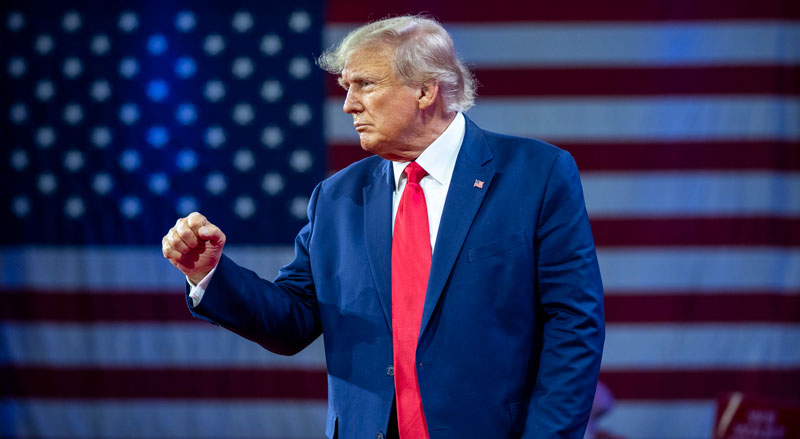An appeals court agreed Monday to reduce former President Donald Trump’s civil fraud case bond while he appeals the ruling.
If Trump is able to put up the $175 million bond within 10 days, the court agreed to block collection of the judgement, according to the Associated Press. Trump said after the ruling that he would pay the required amount.
“We will abide by the decision of the Appellate Division, and post either a bond, equivalent securities, or cash,” Trump wrote on Truth Social. “This also shows how ridiculous and outrageous Engoron’s original decision was at $450 Million.”
Trump initially faced a Monday deadline to pay the $454 million bond to cover the judgement issued by Judge Arthur Engoron. The appeals court’s ruling comes as Trump was facing the risk of New York Attorney General Letitia James initiating collection efforts, which could have included freezing bank accounts or beginning to seize assets.
New York Attorney General Letitia James took the first step towards seizing Trump’s assets by filing judgements March 6 with the Westchester County clerk’s office. Trump owns a golf course and private estate called Seven Springs in the county.
James brought the lawsuit in 2022, alleging Trump deceived banks and insurance companies by inflating his net worth and overvaluing his assets.
The NY Court of Appeals has finally intervened to offer a modicum of restraint in the Trump case. It has A has given former President Donald Trump 10 more days to post a bond of $175 million. That is likely doable and avoids the cliff drop set up by Engoron and James.
— Jonathan Turley (@JonathanTurley) March 25, 2024
Trump’s lawyers indicated in a court filing last week that he would not be able to post bond, writing that “very few bonding companies will consider a bond of anything approaching that magnitude.” His attorneys sought to stay the execution of the judgment.
In response, James argued Trump had not supplied evidence that he would be unable to pay.
“If defendants were truly unable to provide an undertaking, they at a minimum should have consented to have their real-estate interests held by Supreme Court to satisfy the judgment,” the filing stated.
![]()

